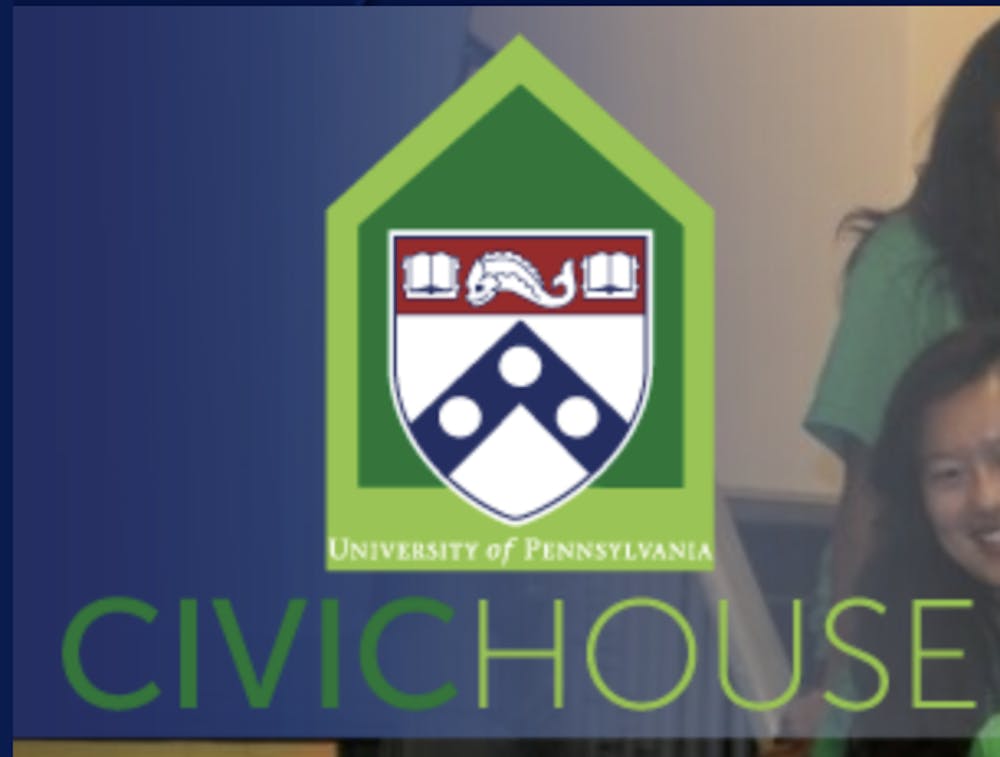Sitting next door to the St. Mary’s Church, directly across from Rodin College House, is Penn’s Civic House. It’s easy to miss if you’re walking by: the front of the house is shrouded in trees, with a few steel tables and chairs along the walkway up to the front porch, where a banner with "CIVIC HOUSE" painted across it hangs. Despite its 20-year history on Penn’s campus, the house is a bit of a mystery to many students. Those who are involved with Civic House dedicate a considerable amount of time to the multitude of initiatives and programs based there, including internships with community organizations, tutoring opportunities on and off campus, and alternative spring and winter break trips that center around domestic community service opportunities.
Maddie Leonard (C’18), one of the directors of PAB (Penn Alternative Breaks) has been on three PAB trips, where she’s gotten to learn about coral reef preservation in Key West, Florida, workers’ rights in Austin, Texas, and housing inequality in Marion, South Carolina. “I’m really grateful for the opportunity to learn directly from and with the individuals experiencing these issues,” says Maddie. “Rather than sending a group of students in for a week to ‘help’ or ‘fix’ problems, PAB works towards mutually beneficial relationships and encourages participants to think about their own identities, both as Penn students and as individuals.”
Opportunities like these give students the chance to interact in a meaningful way outside of campus, often translating into lasting friendships. “I've met some of my closest friends through the organization,” Maddie says, “and I’m so grateful for the spaces of vulnerability and connection PAB has provided me outside of the context of Penn.”
Clare Connaughton (C’18) echoes that sentiment, but she acknowledges how big a time commitment some Civic House initiatives are. Clare’s a member of the Civic Scholars program, a four-year community service and social justice program that culminates in a keystone project in which Civic Scholars make public, social, or organizational policy recommendations on a social issue in Philadelphia. “You give a lot of your time and energy and effort, but you really receive a lot in return in terms of the support you get from the staff and the students.” Hack4Impact, an organization on Penn’s campus that develops software for non-profit and socially conscious organizations, was born out of its founder’s Civic Scholars keystone project.
Through programs such as these, Civic House exposes students to a variety of community engagement opportunities that they might not otherwise have been aware of. Civic House was the first organization on Penn’s campus that helped fund students pursuing non-profit or public internships. This experience provides a level of interactive learning that both Civic House director David Grossman and associate director Elizabeth Cannon agree is integral to the organization. “During the internship, students are really learning and doing capacity building work for different partnerships and mentors who have dedicated their lives to this work.” Elizabeth says. In recent years, Civic House has enabled students to work with organizations such as the Aquinas Center, Bread and Roses Community Fund, and Philadelphia Legal Assistance. “Before there was funding from Career Services, before there was funding from the Wharton Policy Initiatives or Wharton Social Impact, we sought to identify funds to make that possible, “David says. “Now, we’ve transformed this into a more purposeful opportunity, not only in terms of supporting these ongoing partnerships with the community organizations, but also to support students who are learning about and engaging in these communities.”
For students, part of that impact also stems from the environment that Civic House fosters, something David describes as an atmosphere of “radical hospitality.”
“It’s being attentive,” he explains, “Not in a hovering kind of way, but by being mindful of being welcoming to people. We treat our students the way we would want to be treated.” Students are welcome to come inside and hang out in the lounge or any unoccupied rooms. There’s food, tea, and coffee available, and due to the small sized programs, students grow very close within the community. “I feel like if I’m having a bad day I can just walk in and I can talk to someone about it,” Clare says, adding, “We all really value affirming each other and supporting each other.” As Maddie explains, “I had done community service work before coming to Penn, but Civic House really provided me with the language and spaces to think critically about social justice and how my own position influenced this work. “
And certainly, in a political climate like this, there is something transformative about a place like the Civic House. As David puts it, “It’s so much more than just community service. It’s the university’s capacity to be an agency of change.”

